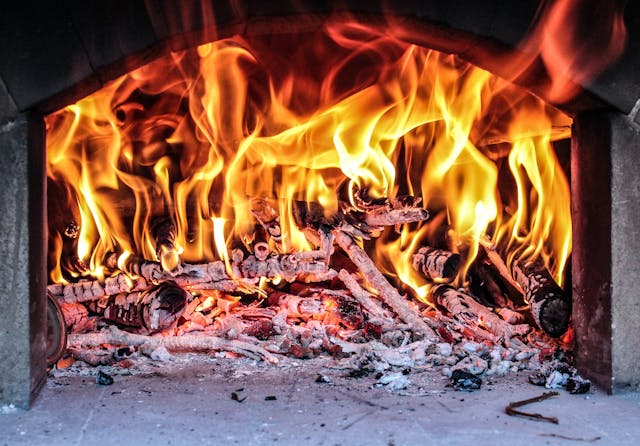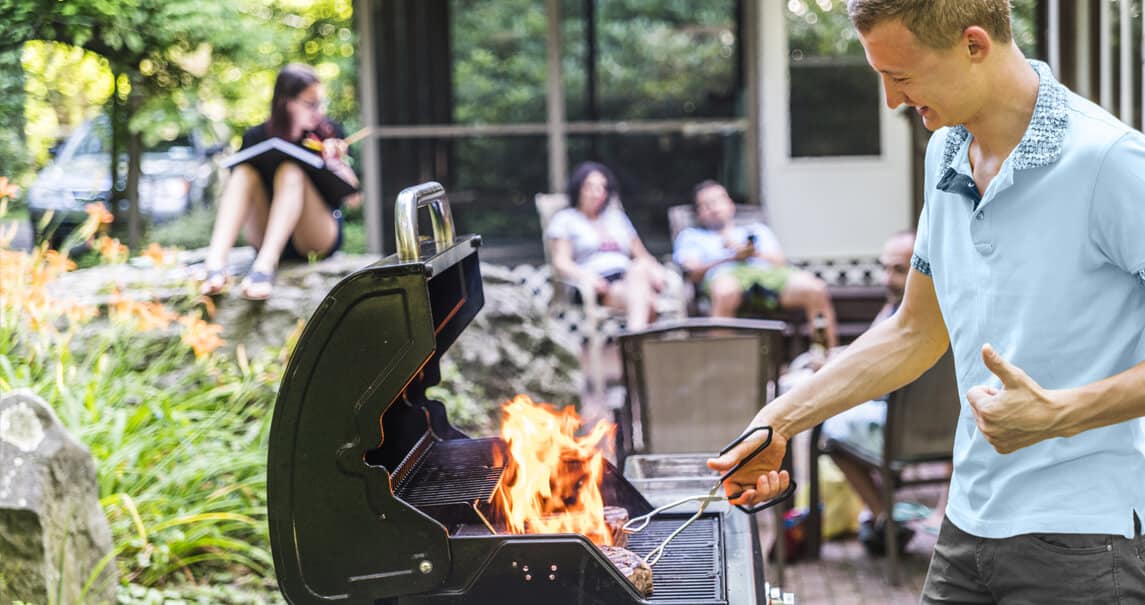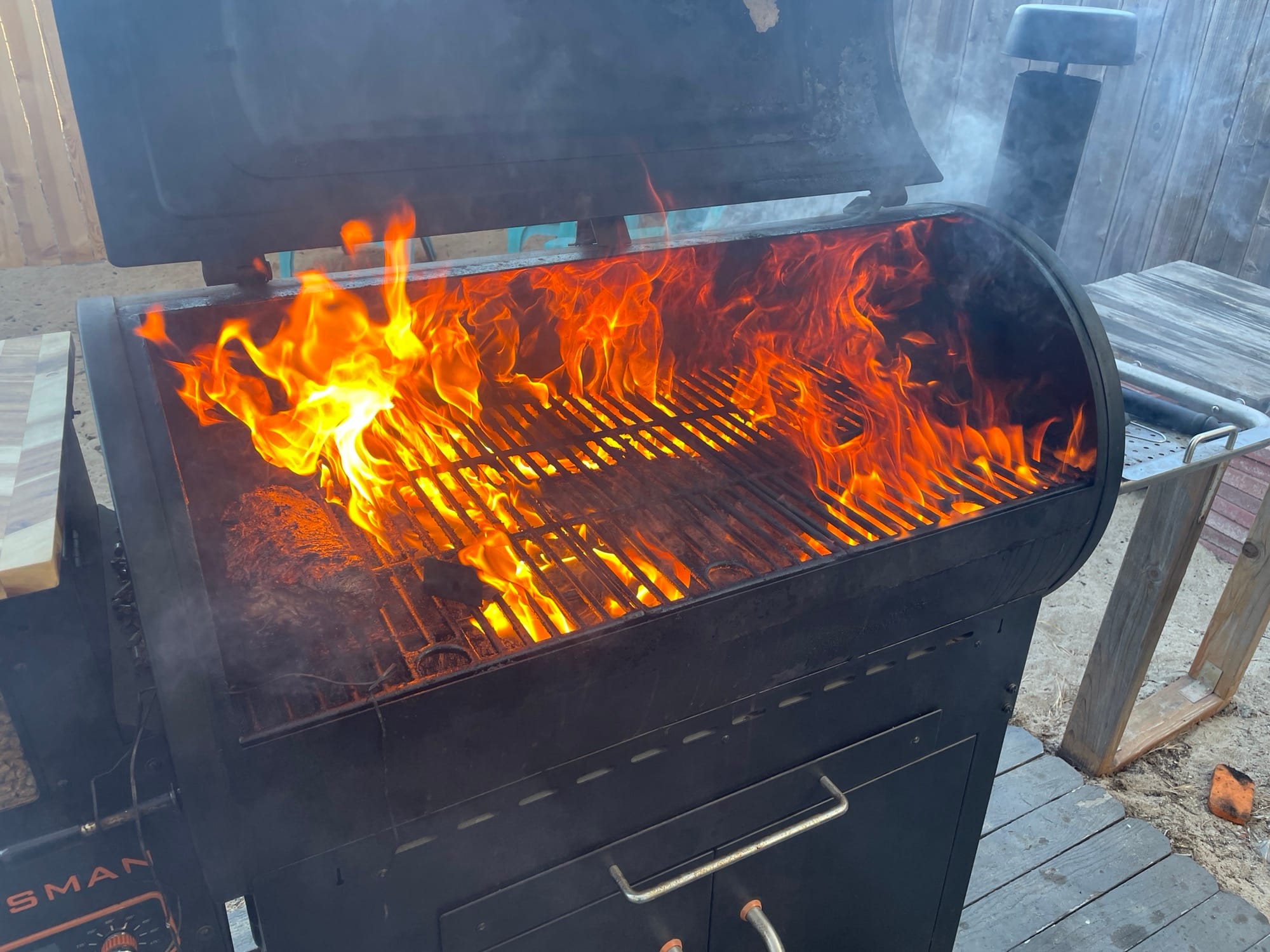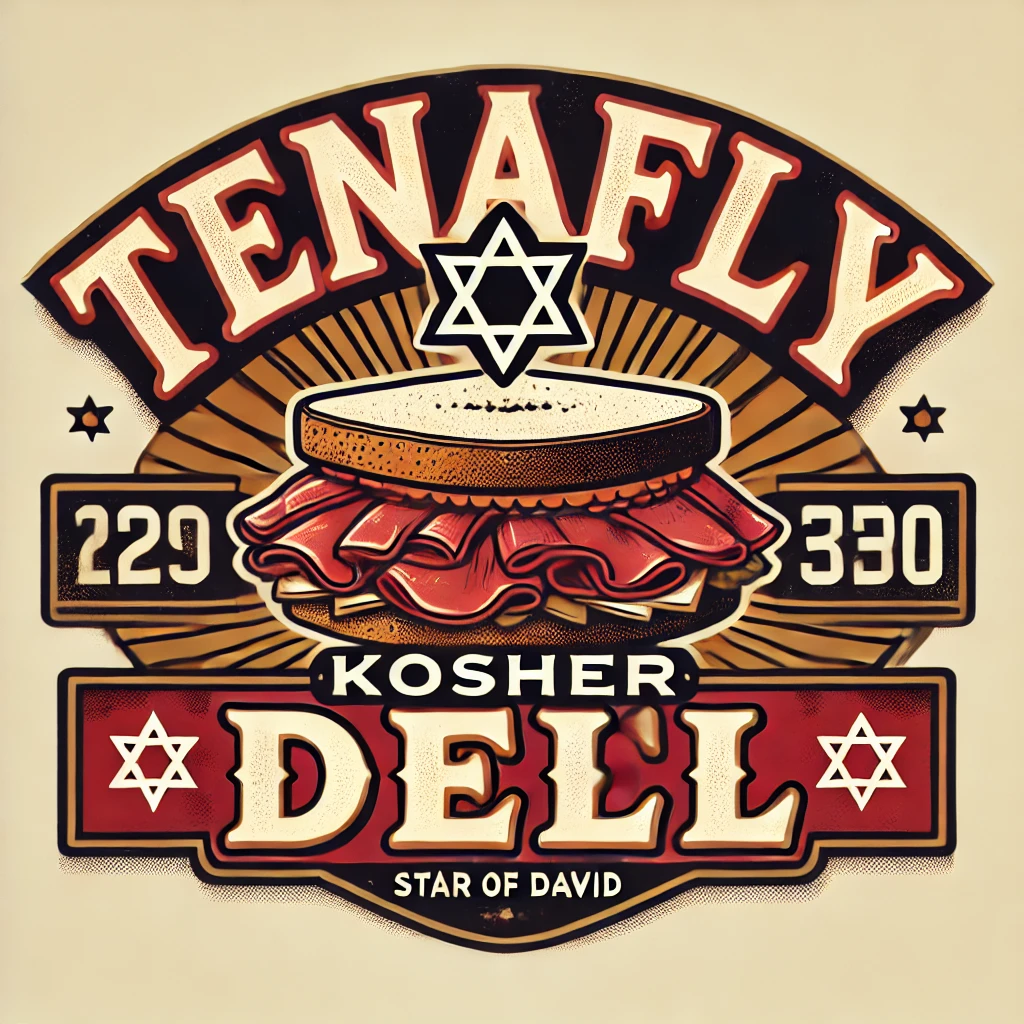
Getting to Know Grease Fires
What Exactly are Grease Fires
Grease fires are a special kind of fire that pops up when cooking oils reach their boiling point. Unlike other fires that can start from all sorts of stuff, grease fires only happen when oil vapors catch fire, leading to big flames that are hard to control. These fires can be super dangerous while cooking and can spread fast, causing damage not just to your grill but to everything around it too.
For instance, while grilling outside, leftover cooking oil on the grates can flare up with high heat. Knowing what a grease fire is really matters if you love BBQ and cook with oils. Spotting the warning signs like higher flames or more smoke can save you a lot.
What Causes Grease Fires
Grilling is fun but it does have its risks. Grease fires usually happen because of a few common slip-ups:
- Too Much Grease Buildup: Grease can build up over time in not just the trays but also around burners and grates.
- Leaving the Lid Open: When the grill lid is open, it can lead to higher flames and make fats ignite faster.
- Using Flammable Liquids: If you use lighter fluids or any flammable stuff incorrectly, especially when it’s still wet, you could easily start a big fire.
- Overcooked Food: Cooking foods that ooze out too much fat can cause flare-ups, especially if the grill isn’t watched.
For example, at one barbecue, juicy steaks led to a grease fire when the chef wasn’t watching. A small flare-up turned into a bigger fire because of too much oil on the grates. They got lucky and put it out with baking soda, but it was a solid reminder about keeping an eye on the grill.
Being aware of these causes is super important for grill lovers. Knowing this stuff helps you take steps to stop grease fires before they happen. Stay alert and grill safely.

The Dangers Involved
Flames Can Spread Fast
The risk of flames getting out of control during a grease fire is pretty serious. Grease fires can escalate quick, putting both the grill user and nearby structures in danger.
- Flame Spread: Once cooking oil ignites, flames can kick up high, especially if the heat isn’t controlled well. For instance, if a few drops of oil catch fire from a flare-up, it could spread to nearby stuff like paper towels, wooden decks, or even your house.
- Ventilation Trouble: Open vents in the grill can let more oxygen in, which just makes the fire worse. Closing the lid and vents can help keep flames contained, but if the fire is allowed to grow, it could lead to a wild blaze.
- Evacuation: Grills are usually by outdoor furniture or structures. If flames start licking around, nearby stuff can catch fire quick, which isn’t just harmful to the grill but the whole area too. So be ready to get everyone out quickly if a big flare-up happens.
Health Risks
Besides the immediate threat of burns, grease fires can also pose health risks. The smoke from burning oils can put harmful chemicals into the air. This can affect anyone nearby, especially those with health issues.
- Smoke Inhalation: Breathing in smoke from grease fires can irritate your lungs and lead to problems like coughing and throat discomfort, and it can even damage your lungs long-term.
- Burn Risks: The super hot flames during a grease fire can cause serious burns, not only to the person grilling but also to anyone nearby. It’s important to stay at a safe distance from the grill, especially when flare-ups happen.
- Be Prepared: Everyone near the grill should know what to do if a fire breaks out. Having a simple safety plan can help reduce risks and keep everyone safe.
Sharing stories about friends who have faced grease fires usually highlights the need to be careful. One neighbor learned to keep a fire extinguisher ready after experiencing a nasty fire that ruined their outdoor setup. This served as a valuable reminder to our community about the importance of awareness and being prepared in case of grease fires.
Grill lovers should respect the dangers of grease fires and do everything possible to learn safe grilling practices.

How to Safely Put Out Grease Fires
Spotting a Grease Fire
Noticing a grease fire early on is key to keeping a small problem from turning into a dangerous one. The warning signs can be subtle, but knowing what to look out for helps you react fast:
- Flame Behavior: If the flames suddenly jump higher than normal, your grill may be having a grease fire.
- Smells: A sharp or strange smell that’s different from grilling can mean fat is burning.
- Smoke: More smoke, especially if it’s dark or oily, is a big indicator that grease is lighting up.
For example, at a summer BBQ, a friend once mentioned a big flare-up while grilling burgers. Noticing the flames jump higher meant immediate action which thankfully avoided any serious issues.
What to Do if a Grease Fire Happens
If you find yourself dealing with a grease fire, knowing how to respond is super important for your safety:
- Shut Off the Burners: If it’s safe, turn off the burners quickly to stop the fuel from reaching the flames.
- Remove Food: If it’s safe to do so, take any food off the grill to stop more grease from catching fire.
- Smother the Flames: Never use water! Instead, toss some baking soda, sand, or kosher salt on the flames to smother them. This helps cut off the fire’s oxygen without making things worse.
- Close the Lid and Vents: After you’ve smothered the flames, closing the grill lid and vents can help take away the oxygen, which is crucial for putting out the fire.
- Get Out if Needed: If the flames don’t go down or they get too big, get out of the area and call the fire department. Safety is the first thing.
Always keep your grill ready for emergencies. Make a safety checklist and put it near the grill. This could include a fire extinguisher, gloves, and a phone handy for emergency calls.
Knowing these steps could mean the difference between a minor issue and a big emergency. Remember, grilling should be about having a good time, not stressing out. Keep these things in mind, and you can enjoy outdoor cooking safely!

Preventing Grease Fires
Cleaning Tips to Keep in Mind
Keeping your grill clean and in good shape is key to cutting down on grease fires. Neglecting grease can lead to big problems, so setting up a cleaning routine is a must. Here are some handy tips:
- Regular Cleaning: Make sure to clean your grill after each use. Scrub the grates and get rid of any grease in the catch trays. This helps your grill work better and keeps flare-ups at bay.
- Thorough Cleaning: At least once a season, give your grill a deep clean by taking apart the removable parts and scrubbing them well. This really helps keep hidden grease from building up and igniting.
- Inspect All Parts: Always check the grill for any damage. Cracks in the parts, worn hoses, or rust can cause it to malfunction and pose fire risks.
- Read the Manual: Consult the manufacturer’s guide for specific cleaning and maintenance recommendations. Following these can keep your grill operating safely.
A personal reminder rings a bell for many of us: after a busy summer of grilling, a friend of mine forgot to clean their grill before putting it away. When they tried to fire it up again, a scary flare-up happened due to the grease they ignored. They managed to put the fire out quickly, but it turned into an important lesson!
Safe Grilling Habits
To help keep grease fires from happening, practicing safe grilling habits is essential. Here are some tips to remember every time you fire up the grill:
- Keep an Eye on the Grill: Don’t ever leave the grill unattended while it’s cooking. Fire stats show most grill fires happen when food is left alone. So keep a close watch on the flames.
- Don’t Overcrowd: Avoid putting too much on the grill at once. Giving everything space allows for even cooking and reduces flare-up risks.
- Use Separate Tools: Always have different utensils for raw meat and cooked food to avoid cross-contamination. This helps keep things neat while cooking.
- Watch for Smoke: If you see smoke or smell burning, check the grill right away. These signals mean the grease may be too hot and could catch fire.
By keeping up with regular cleaning and practicing safe grilling, you can enjoy great barbecue while lowering the risks of grease fires. It’s all about making the experience fun and safe for everyone!
When to Get Help
Knowing When It’s Out of Control
Dealing with a grease fire can be intense, especially when things get heated at a cookout. It’s vital to know when the situation has gone beyond what you can handle for your safety and others. Here are some signs it’s time to call for help:
- Flames Getting Bigger: If you see flames rising uncontrollably or spreading past the edges of the grill, it’s a clear sign that things are serious.
- Smoke and Heat: Too much smoke and extreme heat from the grill or the area around it can mean the fire is getting out of your control.
- Propane Danger: If the propane tank is on fire or in danger of catching fire, get everyone to safety. Propane fires can explode and pose serious risks.
A story that comes to mind is from a summer BBQ where a friend tried to put out a small grease fire that grew out of hand quickly. As soon as flames reached the nearby wooden structure, they knew it was time to clear out and call the fire department, which stopped a potential disaster.
How to Contact Emergency Services
If you’re up against a fire you can’t control, don’t hesitate to call for help. Here’s how you can do it right:
- Safety First: If possible, ensure that you and anyone nearby are at a safe distance from the fire before calling.
- Dial 911: Once you’re at a safe distance, use your phone to contact emergency services. Be clear and direct about what’s going on and where you are.
- Follow Directions: Pay attention to any instructions from the dispatcher, and don’t hesitate to give more info if they ask.
- Don’t Go Back: Resist the urge to go back until firefighters say it’s okay. There could be lingering fires or toxic fumes that pose risks.
In moments of chaos, people can forget these steps. It’s wise to keep a safety plan on hand before you start grilling. Having the emergency contact info in your phone can really help.
At the end of the day, being prepared and staying calm during a grill emergency can help you deal with things right. Fires can and do happen, but if you know the right steps, you and everyone around you can stay safe. Be aware and enjoy your grilling adventures with confidence!
Frequently Asked Questions About Grill Grease Fires
Can I use water to put out a grease fire on my grill?
No, never use water to extinguish a grease fire. Water and oil don’t mix, and water can cause the grease to splatter, spreading the fire. Instead, use baking soda, salt, or a fire extinguisher rated for grease fires (Class B).
What is the first step to take when a grease fire starts on my grill?
First, turn off the heat source if it’s safe to do so. For gas grills, turn off the burners and gas supply. For charcoal grills, close all vents to cut off oxygen. Then cover the flames with a metal lid or cookie sheet if possible.
How can I prevent grease fires on my grill?
Prevent grease fires by regularly cleaning your grill to remove grease buildup, especially in drip trays and under grates. Trim excess fat from meats before grilling, avoid cooking with too high heat, and never leave your grill unattended while cooking.
When should I call the fire department for a grill fire?
Call 911 immediately if: the fire grows larger than what you can safely manage, spreads beyond the grill, threatens structures or people, or if you’ve attempted to extinguish it without success within 30 seconds. Never risk your safety trying to fight a large fire.
How often should I clean my grill to prevent grease fires?
You should perform a basic cleaning after every use by burning off food residue and brushing the grates. Deep clean your grill at least once every 5-10 uses, or monthly during heavy grilling seasons, paying special attention to the grease traps and burners.

A Bergen County institution celebrating authentic Jewish cuisine since 1985. Our pastrami—brined for 14 days, smoked over applewood for 12 hours, and steamed to perfection—creates a melt-in-your-mouth experience that rivals Manhattan’s finest delis. Our rye bread is baked fresh daily using a century-old recipe from Poland. Featured in Food & Wine’s “Top 10 Delicatessens in America” and on Food Network’s “Best Thing I Ever Ate.” Chef Moshe Greenbaum, a third-generation deli master trained at the Culinary Institute of America, ensures every sandwich meets our exacting standards. No wonder our customers drive from three states away.
Leave a Reply